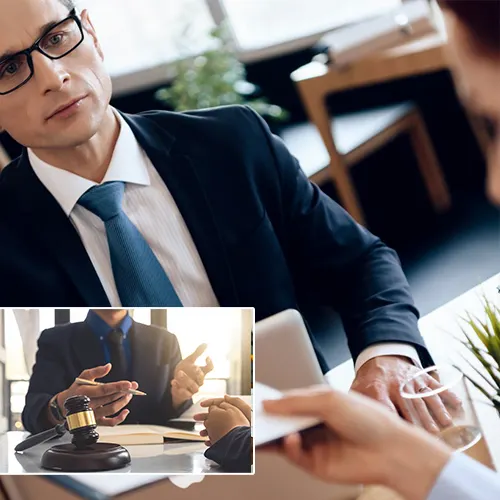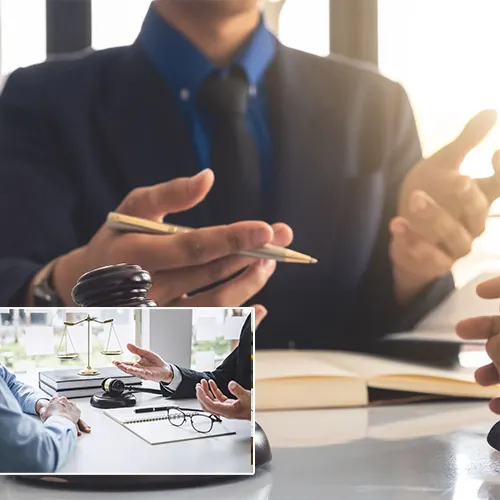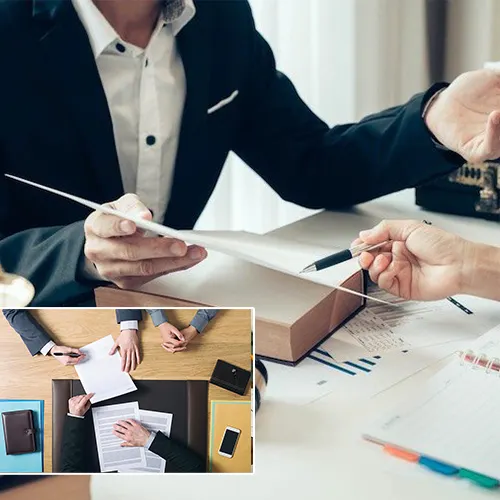Essential Guide: Recording DUI Traffic Stops Legally Safely
Table of Contents []
Recording DUI Traffic Stops
Welcome to John Goehrs: Understanding Your Rights during DUI Traffic Stops

Have you ever been uncertain about what to do when you're pulled over for a DUI traffic stop? You're not alone. Most drivers are unaware that recording their interactions with law enforcement can be an incredibly powerful tool to ensure that all legal protocols are followed. Here at John Goehrs, we specialize in guiding you through the process of recording traffic stops, educating you about your rights, and ensuring you know how to use recordings to your advantage. We provide invaluable resources, including access to skilled legal professionals who are experts at leveraging such evidence. Our nationwide reach means that no matter where you are, help is just a call away at (512) 413-9054.
Throughout your experience with us, we aim to demystify the nuances of legally recording your DUI traffic stop without compromising your safety or the law. Empowered with this knowledge, you can protect yourself and contribute positively to the transparency and accountability that our justice system strives for.
Your Right to Record: Staying Informed and Secure
Understand this: recording law enforcement is usually legal in most areas across the United States, provided you do not interfere with their duties. However, navigating the specifics of these rights can be tricky. That's where we come in. Our team at John Goehrs is at the forefront of keeping our visitors enlightened on this subject.
As a driver, knowing the law surrounding recordings and exercising it with civility is paramount. Say you're in a situation involving a traffic stop; being calm, respectful, and transparent about recording can set a cooperative tone for the interaction. Our specialists at John Goehrs recommend always informing the officer that you are recording, which is both a courtesy and, in some states, a requirement.
Best Practices for Recording
Recording a DUI traffic stop is about more than just hitting 'record' on your phone. Location, lighting, and a host of other factors can influence the quality and legality of the recording. Let's break it down into simple steps to ensure you capture everything clearly and legally.
One key practice we stress is to have your recording device easily accessible. Fumbling through your car compartments can raise suspicion and tension. Ensure your camera is in a fixed position if possible, and that it records both audio and visual-for instance, most smartphones have this capability.
How Recordings Can Help
At times, the memory of a traffic stop can be blurry. Recordings serve as an irrefutable account of the events that transpired. This evidence can be a game-changer in court, often corroborating your version of the encounter or, in some cases, providing necessary context to a situation that may otherwise be misconstrued.
Witnessing an interaction through a recording allows for objective analysis. That's where our team comes in. The legal professionals we connect you with are highly skilled at interpreting these recordings and using them effectively to protect your rights.
Contacting John Goehrs for Guidance
Do you have specific questions concerning recording DUI traffic stops? Perhaps you need to book an appointment with one of our legal experts? No worries-John Goehrs is here to assist. Making contact is a breeze, with direct lines open for any inquiries at (512) 413-9054.
Recording a DUI traffic stop can seem intimidating at first. But with the right guidance, it can safeguard your rights. We're here to ensure that you're well-equipped with knowledge and support to confidently handle these situations.
Step-by-Step Guide on Safely Recording DUI Traffic Stops

Now that you're aware of your rights and the importance of recordings, let's take a closer look at how to effectively document your DUI traffic stop. At John Goehrs, we've curated a comprehensive guide to walk you through each step of the process.
Whether it's a routine stop or something more serious, having a clear record of the event is crucial. Let's explore the best ways to prepare for and execute the recording process so that if the need arises, you'll be ready.
Before the Stop: Preparing Your Device
Before you even hit the road, it's vital to prepare. Ensure your device has enough battery life and storage to record an entire stop. Many drivers forget this basic step, and it can make all the difference. Position your device in a stable location where it can capture clear audio and video without obstructing your view or interfering with vehicle operation.
Just think of your recording device as part of your on-the-road kit, just like your license and insurance. We recommend regularly practicing the process of starting a recording so that if an unexpected stop occurs, you are ready. Preparation breeds confidence, and confidence is key in stressful situations.
During the Stop: Capturing the Interaction
You've been pulled over. Now what? First, calmly notify the officer that you are recording. Remember, this isn't an act of defiance; it's a legal right you are exercising. Keep the camera rolling, ensuring it doesn't obstruct or distract from the interaction. Speak clearly, follow instructions, and keep your hands visible-this not only promotes safety but also ensures that the recording reflects a respectful exchange.
It may feel like a high-pressure situation, but try to stay calm. Think of the recording as a neutral observer, there to protect both you and the officer by capturing a complete, unbiased account of the traffic stop. The experts at John Goehrs can attest to how invaluable such a recording can be in understanding the nuances of a stop.
After the Stop: Securing Your Recording
Once the stop has concluded, it's crucial to secure your recording. Save it immediately, create backups, and avoid making any edits. Should there be any legal follow-up, presenting an unaltered recording is extremely important. If possible, upload it to a secure cloud service or external storage where it cannot be lost or damaged.
And don't forget, if you have questions or if you're unsure about what to do with your recording, our team is ready to assist. A timely review by a legal professional can provide insight into your situation. We at John Goehrs are dedicated to providing that peace of mind.
Guidelines for Non-Confrontational Recording
Our aim is a respectful, non-confrontational approach to recording. It's not about "catching someone out"; it's about maintaining the integrity of the legal process. By staying polite and cooperative, you contribute to a respectful dialogue, which can often lead to a more positive outcome.
Keeping this in mind, the support of John Goehrs doesn't end at the traffic stop. We're here every step of the way to make sure your rights are fully respected and upheld. Should you need to reach out, remember our friendly team is just one call away at (512) 413-9054.
Connecting with John Goehrs for Legal Support

Getting pulled over for a DUI can disrupt your life significantly. But when armed with knowledge and the right kind of support, the impact can be minimized. Now, let's talk about what happens should you need to transition from recording your stop to seeking legal advice.
Recording a DUI traffic stop provides an unaltered narrative of the event. If you find yourself needing to defend your actions or contest any charges, these recordings can be indispensable. Our team of legal experts specializes in analyzing these encounters to help determine the best course of action.
Reviewing Your Recording with a Legal Expert
Once you've secured your recording, it's time for a professional's touch. Contacting John Goehrs can set you on a path to understanding the legal implications of your recorded interaction. Our qualified lawyers can review the content methodically to identify any points of interest or concern that may strengthen your position.
Remember, reaching out to us is simple. You can tap into our network of experienced legal advisors with just a quick call, gaining access to personalized advice and support geared towards your unique situation.
Understanding the Evidence
In the realm of DUI cases, the evidence is king. A recording can display facts about your encounter that are free from bias or misunderstanding. It might show the exact wording of what was said, the behavior of the officer, and even the specific instructions you were given. These nuances could lead to a very different outcome in court than verbal testimony alone.
So, it becomes clear why recordings are so compelling. With the expertise of our team, you're never alone in parsing through the complexities of evidence. It's part of what makes John Goehrs a leader in assisting individuals through DUI stops and any legal challenges that follow.
Building a Case with Audiovisual Evidence
When building a defense, audiovisual evidence can often act as the cornerstone of your case. The narrative it provides is difficult to dispute and can be used to corroborate or question the validity of the claims made by all parties involved. In the hands of our adept legal professionals, these recordings transform into persuasive evidence that can be presented in your best interest.
With a careful review and strategic application, our team is committed to making sure your voice is heard and your rights are honored. For further information on how to proceed, or to book an appointment, don't hesitate to reach out to John Goehrs at (512) 413-9054. We're here to provide clarity and advocacy in times when you need it most.
Best Practices Summarized and Our Call To Action

Recording DUI traffic stops is about safeguarding your legal rights by ensuring transparency and accountability. By becoming informed and prepared, you're taking proactive steps to protect yourself. Let's quickly recap the key points of best practices for recording.
Always be prepared: check your device's battery and storage before you drive. Position your device to record clearly and notify the officer politely that you are doing so. Once the recording is done, secure it by saving and backing it up immediately. Lastly, consult with legal experts, like those at John Goehrs, to review and use the recording effectively.
A Final Summation of Recording Tips
- Inform the officer you are recording, keeping the process transparent.
- Position your device to ensure full coverage of the stop.
- Stay calm and cordial throughout the interaction.
- Save and secure your recording immediately following the stop.
When to Contact Legal Support
If you find yourself unsure or in need of legal aid post-DUI stop, time is of the essence. The sooner you can have a legal expert review your recording, the better prepared you'll be for any legal proceedings that might ensue.
We at John Goehrs prioritize your peace of mind and legal security. Should you require assistance, remember that our lines are open and our legal professionals are ready to help. Let us guide you through the process with confidence and care.
Why Choose John Goehrs
Our commitment to educating and supporting individuals during DUI stops sets us apart. With an expert team on call nationally and a proven history of effective legal assistance, we've built an environment of trust and reliability when you need it most.
The road ahead may look daunting, but with John Goehrs, you're not traveling it alone. Remember, clarity is just one call away. Take action in your defense by reaching out to us at (512) 413-9054 today.
John Goehrs is your ally in navigating the complexities of DUI traffic stops and the intricacies of recording these critical encounters. Armed with knowledge, backed by sound advice, and supported by our legal experts, you possess the power to ensure fair treatment under the law. For further questions, guidance on best practices, or to secure professional legal assistance, contact us now at (512) 413-9054. It's time to protect your rights and take control of your narrative-let us help you make the most of your recordings and secure the justice you deserve.

